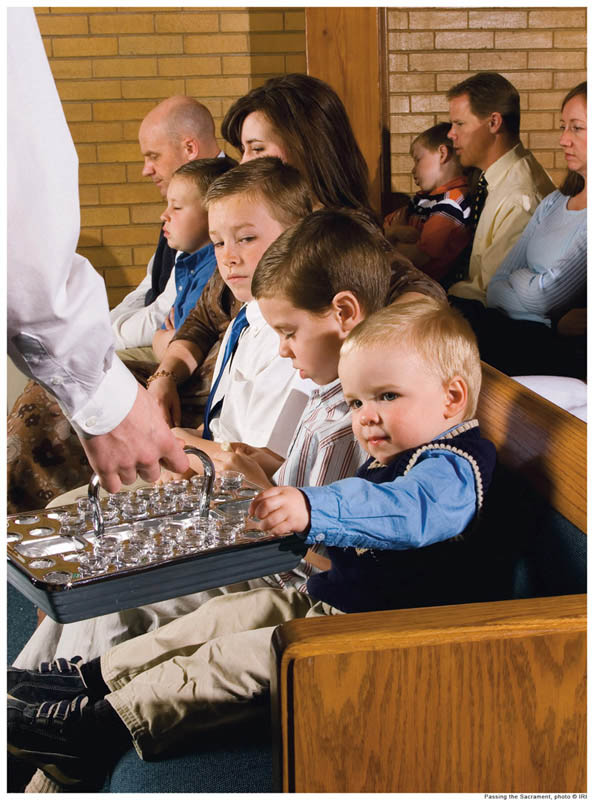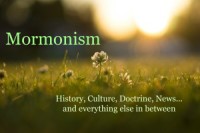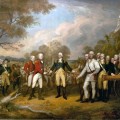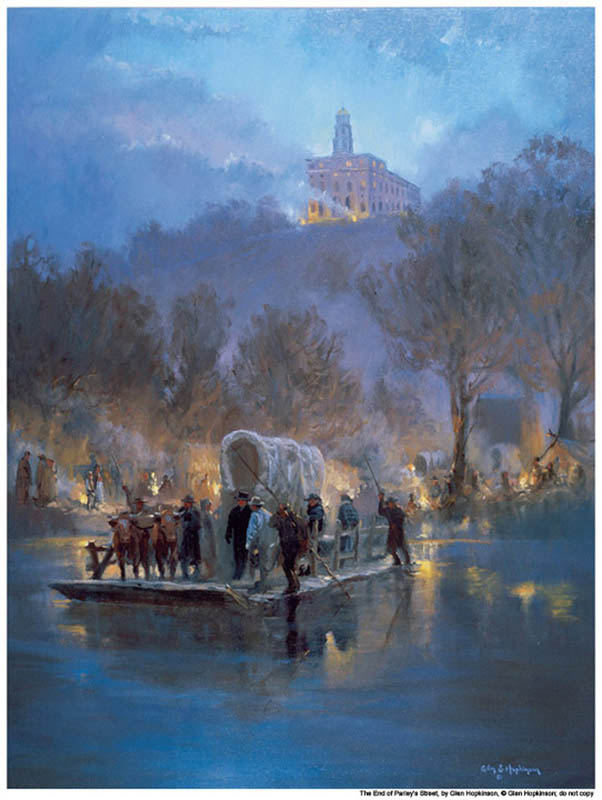It was just two years after the Mormon pioneers had reached Utah. They had been forced from their homes multiple times, sometimes in the dead of winter. They had seen loved ones murdered. They had been the subject of an extermination order by a state government and the federal government had not intervened, despite the obvious unconstitutional nature of the order. They had been forced to flee to Utah, which was owned by Mexico. They wanted to celebrate their new lives, and in a decision that might seem surprising given their history, they chose a patriotic celebration. They erected a giant flagpole and created a giant United States flag to fly on it. Their parade included people carrying flags, and copies of the Constitution and the Declaration of Independence. A speaker assured them that although corrupt leaders had allowed them to be persecuted, the Constitution was still to be honored, revered, and protected. He encouraged parents to teach their children to be patriotic. Brigham Young said he wanted only to be left alone by the government for ten years. Unfortunately, eight years later the military rode in to stop a Mormon rebellion that wasn’t actually happening.
 The Mormons saw the federal government take over their state, even sending in an outsider to be the governor without allowing them to vote. Imagine if such a thing happened today. They took away the rights of the women, who had enjoyed complete suffrage until then.
The Mormons saw the federal government take over their state, even sending in an outsider to be the governor without allowing them to vote. Imagine if such a thing happened today. They took away the rights of the women, who had enjoyed complete suffrage until then.
You would expect a people with such a history to be rebellious, always planning protests and riots. Not the Mormons. Mormon is a nickname for The Church of Jesus Christ of Latter-day Saints, and they feel an obligation to behave as Jesus would. With this in mind, and with commandments from their leaders, they are noted for their patriotism to whatever country they belong. There are more Mormons outside the US than inside.
Mormons believe the Constitution is divinely inspired. This does not mean they think it should never be changed from the way it started, since no one really wants to return to the days of slavery or take away voting rights from women and blacks. It does not even mean they all believe every word is inspired. There is, in fact, disagreement by various leaders on which portions are inspired. Joseph Smith, the church’s first prophet, mourned the lack of what became the fourteenth amendment. This amendment allowed the federal government to enforce the Constitution in the states and did not become law until after the Civil War.
Dalllin H. Oaks offers enlightening discussion on this topic in his talk, “The Divinely Inspired Constitution.” Speaking as a constitutional expert, rather than as a church leader, he offered insights into Mormon views and his own views on the subject. Oaks, now a Mormon apostle, was once a state supreme court justice and helped to draft a Bill of Rights for the Illinois Constitutional Convention.
“Reverence for the United States Constitution is so great that sometimes individuals speak as if its every word and phrase had the same standing as scripture. Personally, I have never considered it necessary to defend every line of the Constitution as scriptural. For example, I find nothing scriptural in the compromise on slavery or the minimum age or years of citizenship for congressmen, senators, or the president. President J. Reuben Clark, who referred to the Constitution as “part of my religion,” also said that it was not part of his belief or the doctrine of the Church that the Constitution was a “fully grown document.” “On the contrary,” he said, “We believe it must grow and develop to meet the changing needs of an advancing world.” “
Elder Oaks finds five fundamentals in the Constitution to be inspired: separation of powers, the Bill of Rights, division of powers, popular sovereignty, and the rule of law. He noted that J. Reuben Clark had found three inspired fundamentals.
Elder Oaks noted:
“I have always felt that the United States Constitution’s closest approach to scriptural stature is in the phrasing of our Bill of Rights. Without the free exercise of religion, America could not have served as the host nation for the restoration of the gospel, which began just three decades after the Bill of Rights was ratified. I also see scriptural stature in the concept and wording of the freedoms of speech and press, the right to be secure against unreasonable searches and seizures, the requirements that there must be probable cause for an arrest and that accused persons must have a speedy and public trial by an impartial jury, and the guarantee that a person will not be deprived of life, liberty, or property without due process of law. President Ezra Taft Benson has said, “Reason, necessity, tradition, and religious conviction all lead me to accept the divine origin of these rights.”
Elder Oaks said that Mormons are encouraged to study the Constitution and to protect the inspired fundamentals. They are taught to obey the law and to be supportive of their governments at all levels. They are also expected to protect morality and to practice civic virtue. This includes serving jury duty, voting, and participating in other legal requirements of government:
“The single word that best describes a fulfillment of the duties of civic virtue is patriotism. Citizens should be patriotic.”
Mormons in the United States celebrate Independence Day. For them, the country provided a means for the restoration of the gospel. Although its history did not always protect the religious freedoms its constitution promises, and although the government is not perfect, they know its basic foundations are inspired. They understand they have the right and the ability to improve it and to protect those freedoms they celebrate each July 4th. For many Mormons it is not just a day for picnicking, but for celebration of the history, present, and purpose of the nation.
About Terrie Lynn Bittner
The late Terrie Lynn Bittner—beloved wife, mother, grandmother, and friend—was the author of two homeschooling books and numerous articles, including several that appeared in Latter-day Saint magazines. She became a member of the Church at the age of 17 and began sharing her faith online in 1992.







